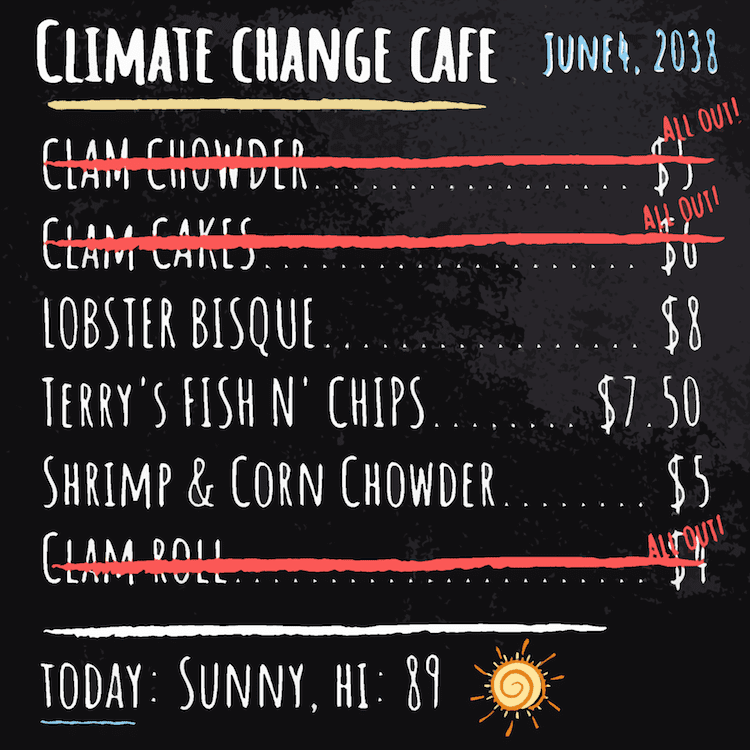Climate change is affecting both nature and the economy. Who will take the hardest hit financially as the world heats up, and can anything be done about it?
Chad Coffin is a commercial shell fisherman in Maine. Maine clammers have traditionally bagged about half of the nation’s entire soft-shell clam harvest. But the harvest has been declining for years, and in 2017, it was the lowest in 87 years.
What happened to all the clams? Scientists point to climate change. The Gulf of Maine has been getting warmer. It’s much more hospitable to green crabs and oysters than clams.
As clamming has gotten harder, Coffin, president of the Maine Clammers Association, has taken on new kinds of work. He started an oyster farm, for example. But he worries that not everyone can adapt to climate change as well as he has.
“The problem is that the people that are most dependent on fisheries are the ones that don’t believe [that climate change is happening],” he says. In his community, it’s educated people who are finding ways to earn a living in a warming world, getting grants and building aquaculture projects. “It’s not everyday, average clammers or fishermen.”
A typical scene for Chad Coffin and his fellow Maine clammers. [Image: Chad Coffin]
Nets for Chad Coffin’s clamming operation. [Image: Chad Coffin]
Chad Coffin appreciates all of the members of his loose-knit team of clamming colleagues. [Image: Chad Coffin]
Billy Pizer is an environmental economist and professor at Duke University’s Sanford School of Public Policy. He compares the present-day costs of taking action to the future benefits we will see if we reduce global warming. Is it worth it to spend more now to prevent problems in the future — problems similar to what Maine clammers are experiencing?
Pizer says the financial impact of climate change will depend on where you live.
“In certain parts of the country that are currently cold, you actually see some economic improvements,” Pizer says. “In other parts of the country, the Southeast, the Southwest, where it’s already fairly warm, you see a lot of economic costs.”
The fight against climate change requires global effort and cooperation. That’s hard to achieve when everyone experiences the effects differently, Pizer says.
“The climate change we feel is going to be as much a consequence of what we do as what China does,” he says. Somehow, we have to build a global trust between countries, and develop the capacity to work together to solve this massive problem.
- Chad Coffin, is head of the Maine Clammers Association
- Read the series of stories in the Portland Press Herald, Mayday: Gulf of Maine in Distress
- Read the episode transcript.
Music: Theme music by David Schulman. “Softly Villainous”, “Lakeside Path”, “The Nocturne”, “Fresno Alley”, “Crumbling Dock”, “An Oddly Formal Dance”, Blue Dot Sessions. Music licensed under Creative Commons attribution. Also “Khreshchatyk” and “Gaia in Fog” by Dan Bodan and “Fresno Alley” by Josh Lippi & The Overtimers, No Copyright Music/YouTube Free Music Library.
Special thanks to the Duke Sanford World Food Policy Center for their support of this episode. Their podcast is called the Leading Voices in Food.





